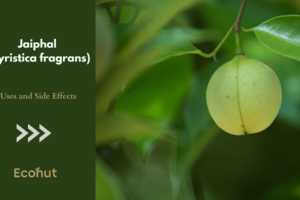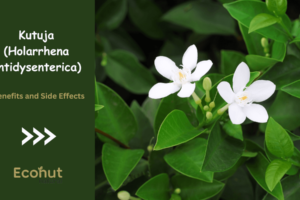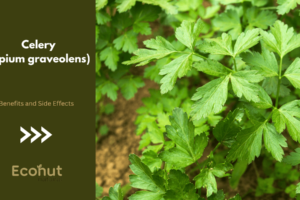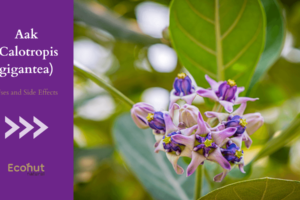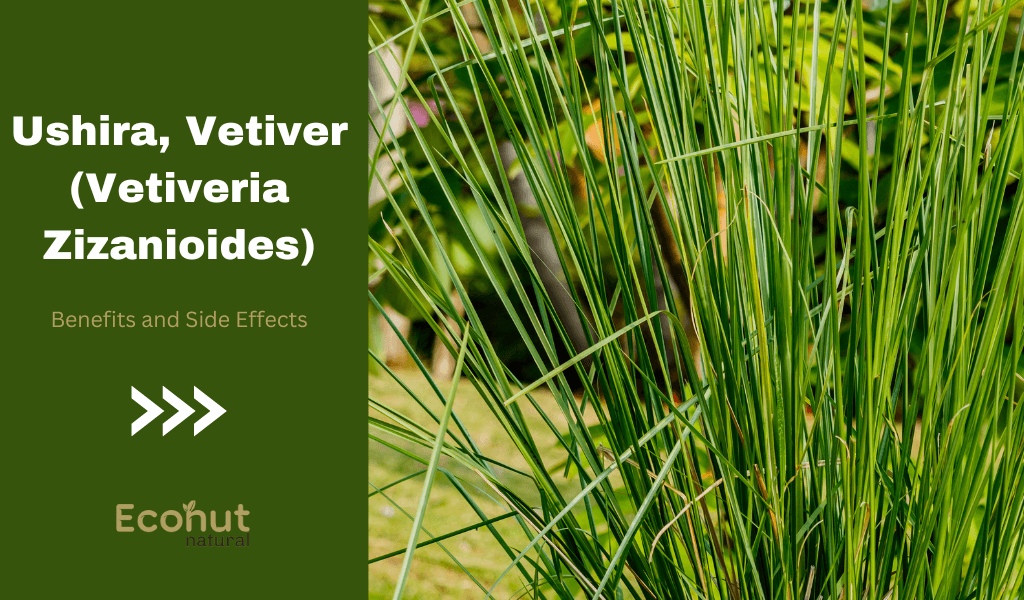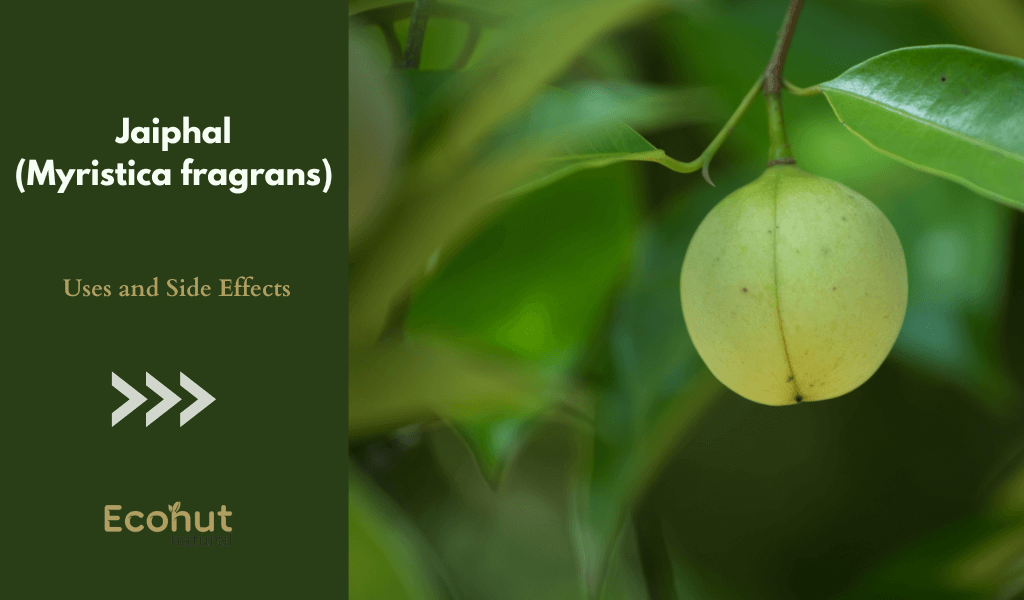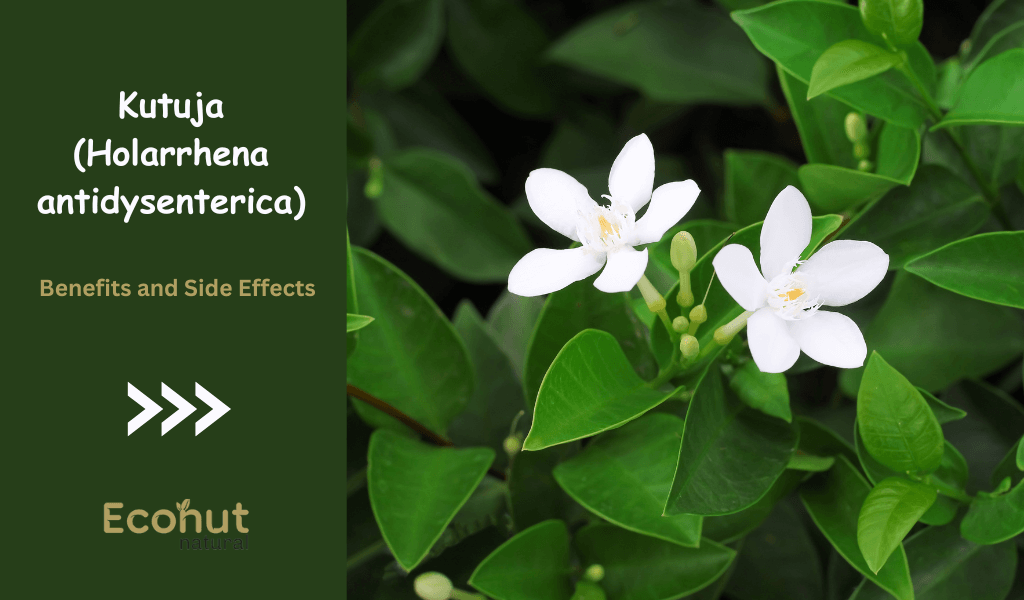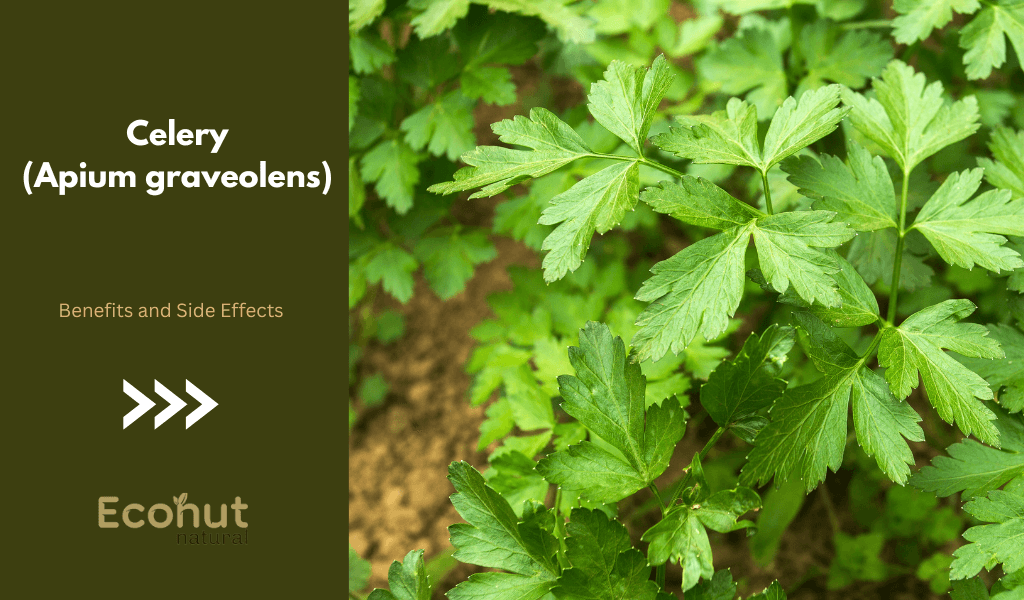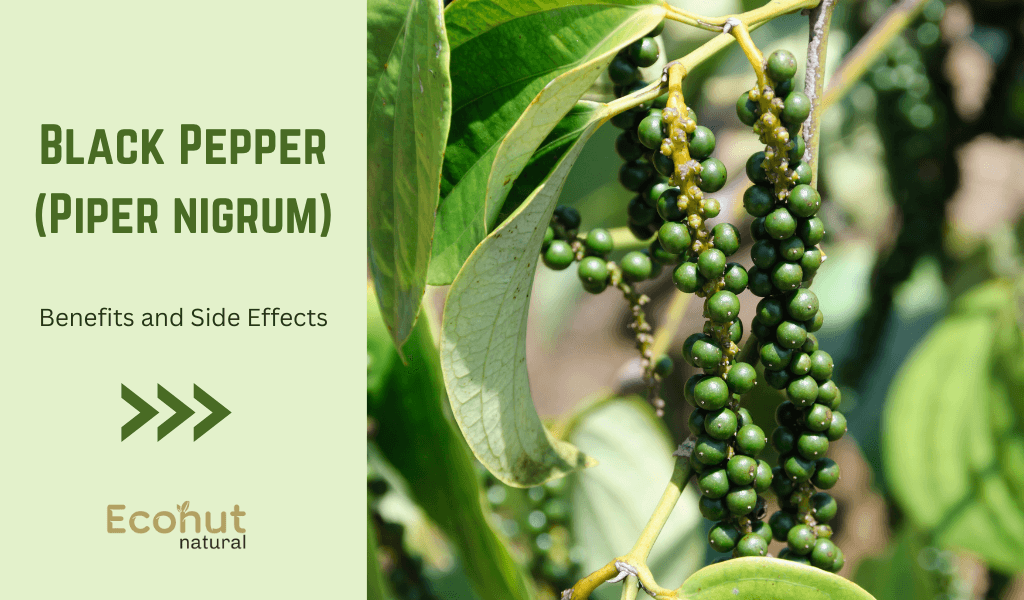Ushira, also known as Vetiver (Vetiveria zizanioides), is a perennial grass native to India. It belongs to the Poaceae family. Vetiver has been widely cultivated for its versatile uses, including medicinal, cosmetic, and environmental applications.
Description of Ushira, Vetiver (Vetiveria Zizanioides)
Vetiver grows to 150 centimetres (5 ft) high and forms clumps as wide. Under favorable conditions, the erect culms can reach three metres in height. The stems are tall and the leaves are long, thin, and rather rigid. The flowers are brownish-purple. Unlike most grasses, which form horizontally spreading, mat-like root systems, vetiver’s roots grow downward, two to four metres (7–13 ft) in depth.
The vetiver bunch grass has a gregarious habit and grows in tufts. Shoots growing from the underground crown make the plant frost and wildfire resistant, and allow it to survive heavy grazing pressure. The leaves can become up to 300 centimetres (10 ft) long and 8 mm (3⁄8 in) wide. The panicles are 15–30 cm (6–12 in) long and have whorled, 25–50 mm (1–2 in) long branches. The spikelets are in pairs, and there are three stamens.
The plant stems are erect and stiff. They can survive deep water flow. Under clear water, the plant can survive up to two months.
The root system of vetiver is finely structured and very strong. It can grow 3–4 m (10–13 ft) deep within the first year. Vetiver has neither stolons nor rhizomes. Because of all these characteristics, the vetiver plant is highly drought-tolerant and can help to protect soil against sheet erosion. In case of sediment deposition, new roots can grow out of buried nodes.
Scientific Classification of Ushira, Vetiver (Vetiveria Zizanioides)
| Class | Liliopsida |
| Subclass | Commelinidae |
| Order | Cyperales |
| Kingdom | Plantae |
| Subkingdom | Tracheobionta |
| Superdivision | Spermatophyta |
| Division | Magnoliophyta |
| Family | Graminae |
| Genus | Vetiveria |
| Species | Zizanioides |
Names of Ushira, Vetiver (Vetiveria Zizanioides)
Sanskrit name: Ushira, Amrnala, Veerana, Virani, Veeratara, Valaka, Balaka
English name: Khas Khas grass, Kus Kus grass, Vetiver
Hindi name: Khas, Khas-Khas, Khus-Khus, Garara
French name: Chiendent odorant, Vetiver
Portuguese (Brazil) name: Patchuli-falso
Spanish name: Zacate violeta, pacholi
Tongan name: Ahisiaina
Bengali name: Khas, Khas-Khas, Khus-Khus, Venaghas
Gujarati name: Valo
Marathi name: Vala
Telugu name: Kuruveeru, Vettiveelu, Vettiveerum
Tamil name: Vattiver
Kannada name: Lavancha
Fijian name: Mulimuli
Benefits of Ushira, Vetiver (Vetiveria Zizanioides)
Ushira, also known as Vetiver (Vetiveria zizanioides), is a perennial grass native to India. It has been widely used in traditional medicine systems like Ayurveda and traditional Chinese medicine for its various health benefits. There are severel benefits of Vetiver (Vetiveria zizanioides) are below.
Cooling Properties:
Ushira is known for its cooling effect on the body, making it useful in treating conditions related to excess heat in the body, such as fever and inflammation.
Anti-inflammatory:
It possesses anti-inflammatory properties, which may help in reducing inflammation and associated symptoms like pain and swelling.
Antioxidant:
Ushira contains antioxidants that help neutralize harmful free radicals in the body, thereby protecting cells from oxidative damage and reducing the risk of chronic diseases.
Antimicrobial:
It exhibits antimicrobial properties, which can help in fighting against various pathogens, including bacteria and fungi. This makes it useful in treating infections and promoting wound healing.
Digestive Health:
It is believed to have digestive benefits and may help in improving digestion, relieving indigestion, and reducing symptoms like bloating and gas.
Detoxification:
Ushira is considered to be detoxifying, aiding in the elimination of toxins from the body and supporting overall detoxification processes.
Supports Respiratory Health:
It may help in relieving respiratory conditions like cough, asthma, and bronchitis due to its expectorant and bronchodilator properties.
Diuretic:
Ushira acts as a diuretic, promoting the production and elimination of urine. This property may be beneficial in managing conditions like urinary tract infections and edema.
Relaxant:
Vetiver oil, extracted from the roots of the plant, is known for its calming and relaxing effects. It is often used in aromatherapy to alleviate stress, anxiety, and insomnia.
Skin Care:
Ushira has been traditionally used for skincare due to its soothing and moisturizing properties. It may help in treating various skin conditions like acne, eczema, and dermatitis.
Other Benefits of Ushira, Vetiver (Vetiveria Zizanioides)
- Causing an abortion
- Nerve problems
- Circulation problems
- Other conditions
Properties of Ushira, Vetiver (Vetiveria Zizanioides)
Hindi / Sanskrit
- Rasa, Tikta, Madhura
- Guna, Laghu, Ruksha
- Virya, Sheet
- Vipaka, Katu
English
- Taste, Bitter, Sweet
- Physical Property, Light, Dry
- Potency, Cold
- Metabolic Property (After Digestion), Pungent
Ushira, Vetiver (Vetiveria Zizanioides) Side Effects
Ushira, also known as Vetiver (Vetiveria zizanioides), is a perennial grass native to India. It’s commonly used in Ayurvedic medicine and aromatherapy for its therapeutic properties. While it’s generally considered safe when used appropriately, there are some potential side effects to be aware of:
Skin irritation:
Some individuals may experience skin irritation or allergic reactions when using vetiver oil topically. It’s always advisable to perform a patch test before applying it extensively on the skin.
Photosensitivity:
There’s a possibility of increased sensitivity to sunlight (photosensitivity) when using vetiver oil topically. This means prolonged exposure to sunlight after applying vetiver oil to the skin may lead to skin irritation or burns.
Pregnancy and breastfeeding:
There’s limited information available regarding the safety of using vetiver oil during pregnancy and breastfeeding. It’s generally recommended to consult with a healthcare professional before using it during these periods.
Drug interactions:
As with any herbal remedy, vetiver may interact with certain medications. It’s important to consult with a healthcare provider if you’re taking any medications, especially before using vetiver oil internally.
Digestive issues:
In some cases, ingesting vetiver oil or consuming large amounts of vetiver tea may cause digestive issues such as nausea, vomiting, or diarrhea.
Blood pressure:
There’s some evidence to suggest that vetiver oil may have a hypotensive effect, meaning it could lower blood pressure. Individuals with low blood pressure should use vetiver oil cautiously, as it may exacerbate this condition.
Drowsiness:
Some people may experience drowsiness or sedation when using vetiver oil, especially when using it in large amounts or in combination with medications that also cause drowsiness.
Also Read: Shalmali, Silk Cotton Tree (Salmalia malabarica): Uses and Benifits
Conclusion
Ushira, or Vetiver (Vetiveria zizanioides), is a versatile plant with various applications in traditional medicine, perfumery, and soil conservation. Its aromatic roots are prized for their calming scent and therapeutic properties, while its dense root system helps prevent soil erosion. With its rich history and diverse uses, Ushira stands as a valuable resource for both cultural practices and sustainable development.
FAQS
Is Vetiver beneficial for skincare?
Yes, Vetiver oil has astringent and anti-inflammatory properties that make it beneficial for skincare. It can help reduce acne, balance oil production, tighten skin, and fade scars and blemishes.
What are the health benefits of Vetiver?
Vetiver has several health benefits, including its ability to reduce anxiety and stress, improve sleep quality, alleviate insomnia, promote wound healing, and support skincare by reducing inflammation and combating acne.
How does Vetiver help with anxiety and stress?
Vetiver essential oil has a calming and grounding effect on the nervous system, making it effective in reducing anxiety and stress. It is often used in aromatherapy to promote relaxation and emotional balance.
Can Vetiver improve sleep quality?
Yes, Vetiver oil is known for its sedative properties, which can help improve sleep quality and alleviate insomnia. Diffusing Vetiver oil or applying it to the skin before bedtime may promote relaxation and induce a restful sleep.
How does Vetiver promote wound healing?
Vetiver contains compounds that have antimicrobial and anti-inflammatory properties, which can help prevent infection and reduce inflammation in wounds. Applying Vetiver oil topically to minor wounds or cuts may aid in the healing process.

